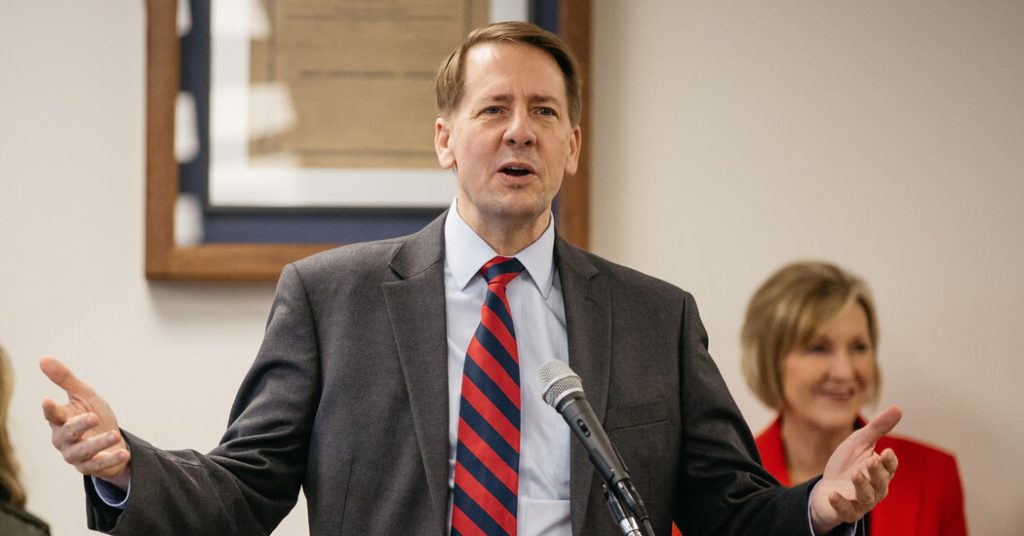
[ad_1]
The nation’s top student aid official is stepping down, the Education Department said Friday, after the disastrous rollout of a new financial aid form that upended the college admissions process for millions of students this year.
Richard Cordray, who took over as the leader of the Federal Student Aid office in 2021, will hand over his duties in June, Education Secretary Miguel A. Cardona said in a statement.
Mr. Cordray’s departure coincides with a fraught admissions season. College administrators, students and members of Congress across the political spectrum have rebuked the Education Department for mismanaging a redesign of the Free Application for Federal Student Aid form, throwing the usual college admissions process into disarray.
In his role, Mr. Cordray also oversaw a variety of other programs, including many parts of the Biden administration’s sweeping vision of student debt relief for millions of borrowers through loan forgiveness and income-driven repayment plans.
“It’s no exaggeration to say that Rich helped change millions of lives for the better,” Mr. Cardona said in a statement.
Before joining the department, Mr. Cordray spent six years as the first director of the Consumer Financial Protection Bureau, where he pursued debt collectors and financiers and helped extract around $12 billion in refunds and canceled debts for nearly 30 million people.
Though Mr. Cordray came with no experience administering education programs, his arrival was celebrated as a win by the Biden administration when Mr. Cardona was working hard to promote and carry out President Biden’s plan to cancel more than $400 billion in student debt for tens of millions of borrowers.
By the end of last year, however, the Biden administration’s student debt plans were struck down by the Supreme Court and warning signs were flashing that the Education Department had let other priorities slip, namely the launch of the new FAFSA form.
The project to simplify the form and make it more accessible to students and their families had been in the works since the beginning of Mr. Cordray’s tenure. But when the form was due to launch last year, the department was still making adjustments.
After missing deadlines, the agency unveiled the new form at the end of 2023, only to discover a dizzying variety of bugs and data errors that locked students out of the application and spat out incorrect financial calculations.
By this spring, Mr. Cordray was scrambling to contain the damage, pulling staff members from across the department who had never worked on FAFSA in for emergency sprints to look over applications, and personally leading overtime and weekend shifts to try to fix the damage, according to recordings of internal discussions obtained by The New York Times.
The botched launch infuriated education advocates who voiced concern that obstacles to applying for aid this year would disproportionately affect the most vulnerable students and could lead to lower enrollment at many smaller colleges that were already facing financial pressure.
By April, Republicans in Congress were openly questioning Mr. Cordray’s leadership, and calling for resignations in the Education Department during a hearing about FAFSA. Experts and college administrators testified then on the harm the botched rollout caused students this year.
“If there was a financial aid director or even a college president that delayed financial aid on their campus for up to six months, the professional price that would be paid for that would be pretty steep,” Justin Draeger, the president of the National Association of Student Financial Aid Administrators, told lawmakers at the hearing.
Mr. Cardona, who in public has repeatedly insisted that the simplified form will benefit generations of future students despite the woes this year, made no mention of FAFSA in announcing Mr. Cordray’s departure.
“We are grateful for Rich Cordray’s three years of service, in which he accomplished more transformational changes to the student aid system than any of his predecessors,” he said.
[ad_2]
Source link






